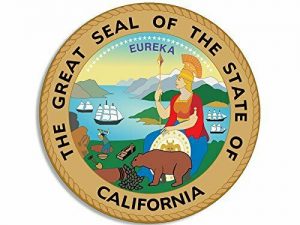CHAPTER 1. Short Title and Definitions
4000. This division may be cited as the Power of Attorney Law.
4001. Sections 4124, 4125, 4126, 4127, 4206, 4304, and 4305 may be cited as the Uniform Durable Power of Attorney Act.
4010. Unless the provision or context otherwise requires, the definitions in this chapter govern the construction of this division.
4014. (a) “Attorney-in-fact” means a person granted authority to act for the principal in a power of attorney, regardless of whether the person is known as an attorney-in-fact or agent, or by some other term.
(b) “Attorney-in-fact” includes a successor or alternate attorney-in-fact and a person delegated authority by an attorney-in-fact.
4018. “Durable power of attorney” means a power of attorney that satisfies the requirements for durability provided in Section 4124.
4022. “Power of attorney” means a written instrument, however denominated, that is executed by a natural person having the capacity to contract and that grants authority to an attorney-in-fact. A power of attorney may be durable or nondurable.
4026. “Principal” means a natural person who executes a power of attorney.
4030. “Springing power of attorney” means a power of attorney that by its terms becomes effective at a specified future time or on the occurrence of a specified future event or contingency, including, but not limited to, the subsequent incapacity of the principal. A springing power of attorney may be a durable power of attorney or a nondurable power of attorney.
4034. “Third person” means any person other than the principal or attorney-in-fact.
CHAPTER 2. General Provisions
4050. (a) This division applies to the following:
(1) Durable powers of attorney, other than powers of attorney for health care governed by Division 4.7 (commencing with Section 4600).
(2) Statutory form powers of attorney under Part 3 (commencing with Section 4400).
(3) Any other power of attorney that incorporates or refers to this division or the provisions of this division.
(b) This division does not apply to the following:
(1) A power of attorney to the extent that the authority of the attorney-in-fact is coupled with an interest in the subject of the power of attorney.
(2) Reciprocal or interinsurance exchanges and their contracts, subscribers, attorneys-in-fact, agents, and representatives.
(3) A proxy given by an attorney-in-fact to another person to exercise voting rights.
(c) This division is not intended to affect the validity of any instrument or arrangement that is not described in subdivision (a).
4051. Except where this division provides a specific rule, the general law of agency, including Article 2 (commencing with Section 2019) of Chapter 2 of Title 6 of, and Title 9 (commencing with Section 2295) of, Part 4 of Division 3 of the Civil Code, applies to powers of attorney.
4052. (a) If a power of attorney provides that the Power of Attorney Law of this state governs the power of attorney or otherwise indicates the principal’s intention that the Power of Attorney Law of this state governs the power of attorney, this division governs the power of attorney and applies to acts and transactions of the attorney-in-fact in this state or outside this state where any of the following conditions is satisfied:
(1) The principal or attorney-in-fact was domiciled in this state when the principal executed the power of attorney.
(2) The authority conferred on the attorney-in-fact relates to property, acts, or transactions in this state.
(3) The acts or transactions of the attorney-in-fact occurred or were intended to occur in this state.
(4) The principal executed the power of attorney in this state.
(5) There is otherwise a reasonable relationship between this state and the subject matter of the power of attorney.
(b) If subdivision (a) does not apply to the power of attorney, this division governs the power of attorney and applies to the acts and transactions of the attorney-in-fact in this state where either of the following conditions is satisfied:
(1) The principal was domiciled in this state when the principal executed the power of attorney.
(2) The principal executed the power of attorney in this state.
(c) A power of attorney described in this section remains subject to this division despite a change in domicile of the principal or the attorney-in-fact, or the removal from this state of property that was the subject of the power of attorney.
4053. A durable power of attorney executed in another state or jurisdiction in compliance with the law of that state or jurisdiction or the law of this state is valid and enforceable in this state to the same extent as a durable power of attorney executed in this state, regardless of whether the principal is a domiciliary of this state.
4054. Except as otherwise provided by statute:
(a) On and after January 1, 1995, this division applies to all powers of attorney regardless of whether they were executed before, on, or after January 1, 1995.
(b) This division applies to all proceedings concerning powers of attorney commenced on or after January 1, 1995.
(c) This division applies to all proceedings concerning powers of attorney commenced before January 1, 1995, unless the court determines that application of a particular provision of this division would substantially interfere with the effective conduct of the proceedings or the rights of the parties and other interested persons, in which case the particular provision of this division does not apply and prior law applies.
(d) Nothing in this division affects the validity of a power of attorney executed before January 1, 1995, that was valid under prior law.
